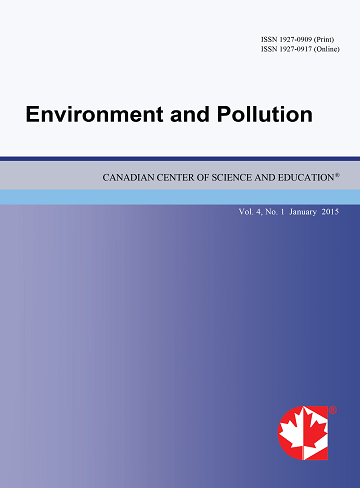Assessment of Adaptive Capacity of Leaves and Roots of Golf Grass Plant Irrigated by Reclaimed Wastewater
- Hind Mouhanni
- Brahim Boudinar
- Abdelaziz Bendou
Abstract
The actual potential of reclaimed wastewater discharged into the bay of Agadir (south Morocco), is 3.65 million m3/year. This important volume is a significant loss for irrigation in this region characterized by semi-arid climate and a long-suffering of over-exploitation of groundwater. This situation is against to the increasing scarcity of water resources and the quality degradation in the entire region.
The production capacity of M’zar plant available for irrigation purpose without any restrictions (category A of WHO norms), is of about 10 000 m3/day and will reach 50 000 m3/day in the medium term. This production capacity of treated wastewaters will fulfill the whole water needs for irrigation of the entire open spaces of Agadir.
Our study is focused on the assess of adaptive capacity of leaves and roots of golf grass plant irrigated by reclaimed wastewater. It presents the planning, protocol and the results of tests conducted to evaluate the effects of TWW reuse on the growth of leaves and roots of grass plant. The results presented involve monitoring of fresh and dry weight of leaves and roots during the first 41 days of growth of three varieties of golf grass: Penccross (V1), the Ray Gras English (V2) and a mixture of 60% Ray Gras English and 40% Red Fescue. The results shown that irrigation with TWW has favored the evolution of the fresh and dry weight of leaves than the root of the grass plant. It’s due to nutrients elements content in the TWW and especially nitrogen compared with conventional irrigation with groundwater.- Full Text:
 PDF
PDF
- DOI:10.5539/ep.v3n4p1
Journal Metrics
Index
- Academic Journals Database
- Berkeley Library
- CAB Abstracts
- CAS (American Chemical Society)
- CNKI Scholar
- COPAC
- CrossRef
- DTU Library
- Elektronische Zeitschriftenbibliothek (EZB)
- EuroPub Database
- Excellence in Research for Australia (ERA)
- Genamics JournalSeek
- Google Scholar
- Harvard Library
- Infotrieve
- Jisc Library Hub Discover
- JournalGuide
- JournalTOCs
- LOCKSS
- Max Planck Institutes
- Mir@bel
- PKP Open Archives Harvester
- Pollution Abstracts
- Publons
- Pubmed journal list
- ROAD
- Scilit
- SHERPA/RoMEO
- Standard Periodical Directory
- Stanford Libraries
- UCR Library
- Ulrich's
- UniCat
- Universe Digital Library
- UoS Library
- WorldCat
- Zeitschriften Daten Bank (ZDB)
Contact
- Albert JohnEditorial Assistant
- ep@ccsenet.org
